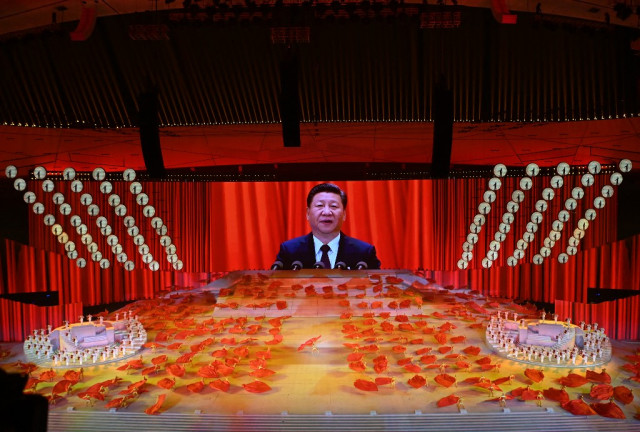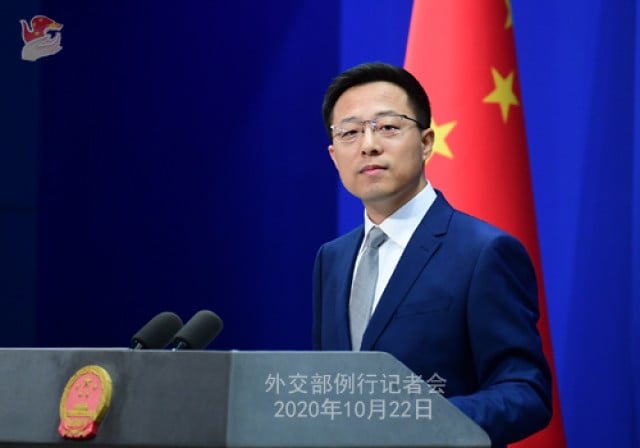Cambodia-Malaysia Relations Reaches New Momentum After PM Manet’s Visit

- By Him Rotha
- March 1, 2024 2:15 PM
The relations between Cambodia and Malaysia reaches a new momentum after the recent diplomatic visit by Prime Minister Hun Manet to Malaysia. To further capitalise on this momentum, both countries should do more, not only to improve bilateral relations but also to work together more steadfastly on regional cooperation and brush aside their mutual suspicions in a turbulent geostrategic landscape.
During his visit to Malaysia on February 27, PM Hun Manet met with the Malaysian King, Sultan Ibrahim Iskandar, Prime Minister Anwar Ibrahim and many other high-level dignitaries in Malaysia. The Cambodian Prime Minister and his Malaysian counterpart pledged to enhance bilateral ties in various fields, including economic and trade cooperation, energy, defence, and people-to-people ties, especially in enhancing the relations between Malaysians and the Muslim Community in Cambodia.
This visit marks several milestones for Prime Minister Hun Manet. First, this is his first “official visit” to the Maritime Southeast Asian nation. Second, PM Manet is the first foreign leader to meet with the new Malaysian King, Sultan Ibrahim Iskandar merely a month after his coronation.
According to the readout by the Cambodian Foreign Ministry, there were many fruitful and promising potentials between Cambodia and Malaysia. One of the standout things is the two countries’ central banks signed a memorandum of understanding, paving the way for using QR payment in respective countries with their respective currencies.
This means Malaysians can use Ringgit when traveling to Cambodia, and Cambodians can use Khmer Riel in Malaysia. This is a way to attract Malaysians to Cambodia, and vice versa. This cross-border QR payment scheme might set a good example for banknote convertibility among all ASEAN currencies, spurring greater financial integration among nations in Southeast Asia.
More than that, recognising the limited bilateral trade, the Prime Ministers of Cambodia and Malaysia agreed to have a Joint Trade Committee to enhance trade and investment between the two countries. In 2023, the trade volume between Cambodia and Malaysia was around $600 million, a slight increase from the previous year. This trade volume is still small, compared to other countries; therefore, it is needed to have such a trade committee to envision the future direction of economic cooperation between the two countries.
Another important thing is that Malaysia and Cambodia agreed to inject more vigor into bilateral relations by resuming the Joint Commission on Bilateral Cooperation (JCBC) between the two countries for the first time in almost two decades. With JCBC, the two countries can lay out more concrete and substantive plans to enhance bilateral relations.
Hun Manet's recent visit to Malaysia likely catalysed a fresh impetus for bilateral relations between Cambodia and Malaysia across various domains.
First, this visit signified the efforts to boost the Cambodian economy by the government under the leadership of Prime Minister Hun Manet. As outlined in the pentagonal strategy, socioeconomic development is the top agenda of the current government. The visit to Malaysia complements this domestic priority with many promising investment opportunities from Malaysia to Cambodia. For Cambodia, Malaysia is a significant and influential member of ASEAN with a sizable population, strong economy, numerous enterprises, and the source of major importers of goods to Cambodia.
Second, the visit to Malaysia reflected the proactiveness of the foreign policy of the government in strengthening the relations with not only neighboring countries and superpowers but also trying to bridge the gaps between Mainland and Maritime Southeast Asia. The visit creates a fresh impetus for both countries to seek innovative methods to intensify their multifaceted cooperation, spanning politics, security, socio-economy, and culture.
Third, besides economic cooperation and foreign policy standpoint, the recent meeting between Anwar and Manet highlighted the great importance of the well-being and livelihood of the people of Malaysia and Cambodia. In the joint press conference, Prime Minister Anwar expressed appreciation towards the Cambodian government for assisting Malaysian scam victims, while Prime Minister Hun Manet thanked Malaysia for taking care of Cambodian workers and residents in Malaysia. More than that, Prime Minister Anwar is committed to playing a “positive and meaningful” role in assisting the Muslim Community in Cambodia.
Though several positive outcomes were noted with the focus of the two governments mainly on promoting bilateral ties and selected sectors, with the economy being the top priority, politically sensitive issues such as Myanmar and the South China Sea were not publicly discussed.
To move forward, both countries should make use of all available channels of communication, including the upcoming JCBC, to ensure that there are no misunderstandings or miscommunications. Both countries need to establish clear boundaries regarding their domestic concerns to prevent any negative impact on the overall diplomatic relationship between them.
Economically, the two countries should further strengthen bilateral trade and investment cooperation, deepen their economic engagement for mutual benefit, and forge closer cooperation in small and medium-sized enterprises (SMEs) development, which will lead to stronger enterprises for economic growth. Both countries should double down on deepening economic integration through liberalisation initiatives and enhancing Free Trade Agreements (FTAs) to provide opportunities for the private sector of both countries to positively promote and realize the full potential of Malaysia and Cambodia's bilateral trade.
Moreover, Cambodia and Malaysia shall tap this momentum to bridge their differences between Mainland and Maritime Southeast Asia on such issues of geostrategic importance. One of the issues is the Mekong, which has not attained a “regional” status and has not yet been a priority for ASEAN. Cambodia should take the initiative to seek Malaysia's support on the Mekong issues which always remain under the radar of ASEAN. On the other hand, Malaysia could assume a more proactive role in supporting Cambodia’s role in addressing the Mekong issues, particularly problems related to environmental and socio-economic impacts affecting not only the mainland countries of ASEAN but the region's broader security and geopolitical considerations.
There are many other challenges—both internal and external—surrounding the region amidst the current geopolitical complexity that might weigh down Cambodia and Malaysia relations. As the two countries are both members of the ASEAN family, they should forthrightly reconcile each other position on pressing regional issues.
Regarding the situation in Myanmar, Cambodia, and Malaysia might have different approaches. Malaysia is one of several members of the regional grouping that have taken a hard line toward Myanmar’s Military Authority for its failure to implement a five-point ASEAN consensus on promoting peace. Cambodia, when serving as chair of ASEAN in 2022, appeared to want to engage Myanmar's generals in a conciliatory manner.
Likewise, when discussing tensions in the South China Sea and the geopolitical rivalry, Malaysia, as one of the claimant states disputes China's claim to wide swaths of the South China Sea. Cambodia, without claim of its own, has been expressing lukewarm in supporting its fellow members' positions. For this matter, Cambodia is perceived as being too close to China in the region.
In reaching for the full potential of their relations, and at the same time maintaining a steady course on their existing excellent bilateral relations in economic and social realms, Cambodia and Malaysia must do more to enhance ASEAN unity and centrality. The two countries should set a good example by diligently working collectively with mutual respect to bring all Southeast Asian nations together in good relations and strong unity based on mutual trust to set greater impetus for the two sides’ future engagement for the collective benefit of the region.
Him Rotha is the Deputy Director of the Cambodian Center for Regional Studies (CCRS). The view expressed is his own, not representing his affiliation.















